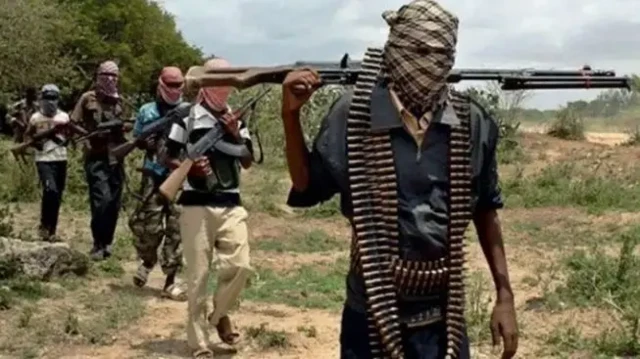On 2 November 2025, Donald Trump declared that the U.S. might send troops or launch air strikes in Nigeria over what he described as “record numbers” of Christians being killed in the country. The Nigerian government quickly rejected the idea of unilateral foreign military action, insisting its sovereignty must be respected.
So, what’s going on in Nigeria, who’s affected, and what might U.S. involvement mean?
What’s happening in Nigeria
Violence is intense and spreading.
- In parts of Nigeria, especially the north-west, north-central (often called the “Middle Belt”) and some rural zones, armed groups carry out attacks on villages, farms, schools, and churches.
- One recent example: In Benue State, about 42 people were killed in attacks on four communities.
- There’s data showing that Nigeria remains one of the deadliest places in the world to be a Christian, with estimates of thousands killed each year. However, it’s also worth noting that Nigeria (especially those regions mentioned earlier) is also one of the deadliest places to just be a person, regardless of religion.

Who is behind it?
- Some attacks are by extremist groups, such as Boko Haram and its off-shoots, active in the north-east.
- But a large share of violence is tied to violence in the north-west / north-central, involving armed herder-militia (often from the Fulani ethnic group), farmer-herder clashes, land/resource disputes, criminal gangs.
- Importantly: while Christians are often targeted (especially in Christian-majority villages in those regions), Muslims are also victims. Location and livelihood often matter more than just religion.
Who is at risk?
- Rural farming communities in the Middle Belt and north-west: many are Christians, many are farmers.
- Women, children, families in villages with limited access to protection.
- Regions where state security is weak and where land, water and grazing rights are contested.
- Note: it is not exclusively “Non-Christians attacking Christians” in a simple way; many non-Christians are victims too, and the drivers overlap (economic, ecological, ethnic).
What the U.S. is saying and how Nigeria is responding
- President Trump said the U.S. will “not allow” Christians to be killed in “very large numbers” in Nigeria, and threatened that “troops on the ground … or air strikes could be” one option.
- The Nigerian government said it is open to help from the U.S., if it respects Nigeria’s territorial integrity and is done in partnership.
- Nigerian officials also argue the issue is more complicated than a religious persecution narrative, saying the violence has many causes and affects many groups.

What could be positive about U.S. involvement?
- If done well, the U.S. could help Nigeria with intelligence, training, logistics, and support, helping local forces become stronger.
- It could raise the global spotlight on Nigeria’s violence, pressuring the government to act more decisively and effectively.
- It might help protect vulnerable communities, speed up humanitarian relief, or offer refuge or safe corridors in extreme cases.
What are the risks and drawbacks?
- Sovereignty and backlash: If foreign troops show up or air strikes occur without Nigerian control, many Nigerians may view it as a foreign invasion. That can fuel resentment, nationalism, or strengthen militias’ recruitment.
- Civilian harm: Foreign operations often lack full local knowledge; mis-strikes can kill civilians, worsening the crisis. We’ve seen this in many other countries over the years.
- Mission creep: What starts as “help” can become a long-term occupation, or involve many unexpected tasks and expenses.
- Distraction from root causes: If the focus is mostly on “military solution”, the deeper drivers (like land rights, climate change, poverty, local governance) may continue unchecked.
- Mixed messaging & legitimacy: When one country points fingers, it can complicate local politics as some communities may feel targeted or left out.
Quick glance at “when outside countries intervened”
- In some past cases (such as U.S. or NATO intervention in places like Libya), initial success was followed by long-term instability when local institutions weren’t strengthened.
- In other cases (like international inaction in Rwanda) the moral cost of not intervening has been huge.
- The main lesson: intervention can help, but only if tied to clear goals, local partners, exit strategy, and root-cause work.
So what might make sense?
- A measured approach: the U.S. (and other partners) offering support only with the full consent of Nigeria, and focusing on training, intelligence and humanitarian aid rather than heavy boots-on-the-ground.
- Nigeria strengthening local security, tackling land-use conflicts, supporting displaced farmers/herders, and ensuring victims’ protection, not just reactive responses.
- Civil society, youth groups, and local faith networks being brought into the conversation, so that any response is not just “foreign force” but grounded in Nigerian communities.
- Communication that doesn’t simplify the conflict as “only religion” but acknowledges economic, environmental, ethnic, and governance issues too.
The violence in Nigeria is real and urgent. The question isn’t just whether something should be done; that’s a given. It is how, by whom, and to what purpose. When a power like the U.S. threatens direct military action, the stakes get higher: for Nigeria’s sovereignty, for innocent lives, and for how youth, farmers, church members and everyday Nigerians experience both the violence and the outside response.
Leave a Reply